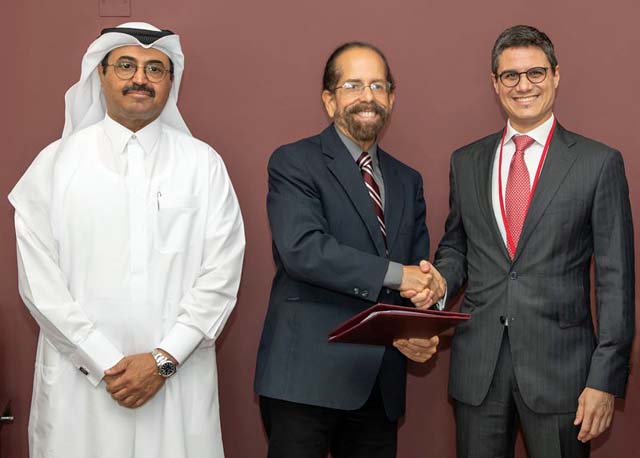A landmark study into carbon capture and the global supply chain is to be carried out in collaboration between ABS and Texas A&M University at Qatar (TAMUQ), to research the potential of carbon capture technology at sea.
The project will explore CO2 reduction strategies as well as emerging onshore CO2 reduction technology and establish a model for effective CO2 capture on an LNG vessel. The study will examine the effect of the energy transition toward a hydrogen-based economy on processing, emissions and shipping across Qatar as an energy exporter.
Pantelis Skinitis, ABS Director, Qatar Business Development, said: “Carbon capture is a technology with significant potential to contribute toward the marine and offshore industries’ sustainability goals. ABS is committed to supporting its safe adoption by the industry. This work with leading research universities in Texas and Qatar is an important step toward making this technology a viable strategy for operators.”
Dr César Octavio Malavé, dean of TAMUQ, said: “Texas A&M is proud to partner with local, regional and international collaborators from various industries and sectors to help realise sustainable solutions to real-world challenges in Qatar and around the world. These interdisciplinary collaborations are vital and allow us to innovate to meet emerging needs and grand challenges, and we are grateful to our friends at ABS for working with us on this important project.”
The project capitalises on research performed in the Chemical Engineering Program at TAMUQ over the past decade and is led by Dr Mamoun Al-Rawashdeh, Dr Dhabia Al-Mohannadi and Dr Patrick Linke. The project advisory board will be chaired by His Excellency Dr Mohammed bin Saleh Al-Sada.



